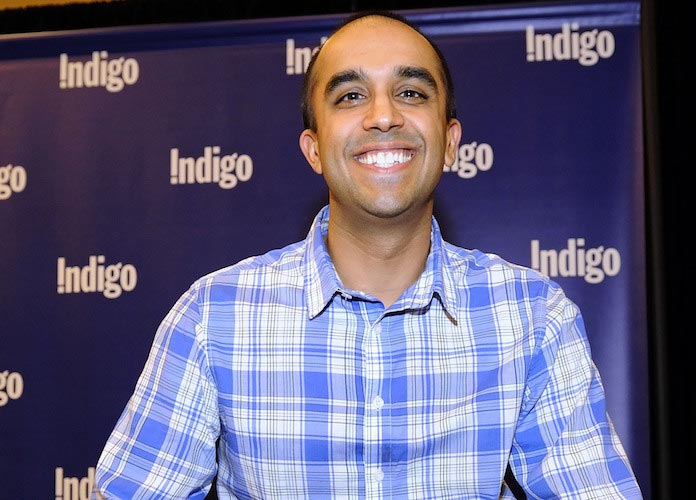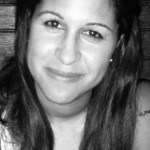Neil Pasricha On The Happiness Equation, Why We Shouldn’t Retire
Canadian writer Neil Pasricha‘s latest book, The Happiness Equation: Want Nothing + Do Anything = Have Everything, was inspired by the news that he was soon to become a parent.
Neil Pasricha On ‘The Happiness Equation’
On the way home from his honeymoon, Pasricha’s new wife realized that they were expecting a baby. The revelation that he would soon be responsible for another human life, inspired Pasricha to flesh out the best way for his child to have the happiest life possible.
“When we landed at home, I started writing a letter. It turned into a 300 page letter to my unborn child on how they can find happiness if I wasn’t around to help them,” Pasricha told uInterview in an exclusive interview. “That letter has evolved into the book you’re holding, The Happiness Equation.”
At the crux of Pasricha’s philosophy is that happiness needs to be achieved before anything else can be achieved.
“If [you’re] happy first, by choosing to be happy and investing in your happiness – and that’s the secret –then you do great work,” claims Pasricha. “In fact, you’re 31 percent more productive, you have three times the creativity, and you have big success afterwards.”
You’re also happier, according to Pasricha, if you eliminate the idea of retirement. According to his research, people who have no concept of retirement live longer and happier lives. Pasricha believes that there’s a far better alternative to retirement – finding further purpose.
“Find a job with the four S’s: Social, structure, stimulation and story,” Pasricha advises. “It can be volunteer work, non-profit work, whatever, but as long as you’re doing something productive with those four S’s you’ll always be doing something you love and you’ll have a lot more purpose in your life.”
In The Happiness Equation, Pasricha talks at length about channeling fears into successes and eliminating the clutter of day-to-day life. Both suggestions are anchored by the idea of being present and invested in possibility.
“You get rid of the fear you have by thinking you can’t do it and that you wanna do it and you place a little baby step of action ahead of time,” says Pasricha. “So just run to the corner of the street if you wanna run a marathon. Start writing on a piece of paper if you wanna write that book. Don’t wait for perfection, don’t wait for the perfect shoes or the perfect notebook or the perfect coffee shop, because you’ll be waiting forever.”
The Happiness Equation: Want Nothing + Do Anything = Have Everything is currently available in hardcover.
My wife actually told me she was pregnant on the flight home from our honeymoon. She wasn’t feeling well, so she bought a pregnancy test on the layover, and I was struck by the thought that every new dad has, which is: how do I make sure I give this kid a happy life? When we landed at home, I started writing a letter. It turned into a 300 page letter to my unborn child on how they can find happiness if I wasn’t around to help them. That letter has evolved into the book you’re holding, “The Happiness Equation.”
Our model for how we think about happiness is totally backwards. You and I were probably both told by our parents like, ‘If you work really hard then you’ll do great work and then you’ll be happy,’ like, ‘study hard, get good marks at school, get into a great school and be happy,’ or, ‘work really hard, get promoted and then get happy.’ But all the research today actually shows the opposite is true. If you be happy first, by choosing to be happy and investing in your happiness, and that’s the secret, then you do great work. In fact, you’re 31 percent more productive, you have three times the creativity, and you have big success afterwards. The Happiness Equation secret number one actually says be happy first, and it gives a few reasons and ways to do that.
The dream we all have is completely wrong, and the conclusion I’d make is the research I’ve done and learned from others actually shows that the healthiest societies in the world, those with longer life spans, seven years longer than those we have here, actually have no word for retirement, no concept of it. Instead, they have another word called ikigai, or a reason you wake up in the morning. So what I’m saying when I say don’t retire is, let’s remember retirement was invented in the late 1800s in Germany when they made retirement age 65, but average lifespan was 67. They created the two year gap. These days we all want to retire so young, and we’re living so old. So what do you do with all that space? I say find purpose, find a job with the four S’s: Social, structure, stimulation and story. It can be volunteer work, non-profit work, whatever, but as long as you’re doing something productive with those four s’s you’ll always be doing something you love and you’ll have a lot more purpose in your life.
I’m 36 years old now. When I was in my early thirties, I couldn’t swim. I never learned to swim, I had ear infections my whole childhood, it was a fear for me, I never went in the water at all. Then I started dating, who became my wife, and she said to me, ‘I love swimming and everyone swims at my cottage so you’re gonna have to swim if you wanna come up there.’ So, instead of thinking about whether I could do it or whether I wanted to do it I just did it. I placed the action first and what happened when I went to adult learn-to-swim class and realized everybody was no good, not just me. The confidence and the motivation followed. So how do you turn your biggest fear into your biggest success? Well you get rid of the fear you have by thinking you can’t do it and that you wanna do it and you place a little baby step of action ahead of time. So just run to the corner of the street if you wanna run a marathon. Start writing on a piece of paper if you wanna write that book, don’t wait for perfection, don’t wait for the perfect shoes or the perfect notebook or the perfect coffee shop because you’ll be waiting forever.
I’m speaking as a Harvard MBA and the average exit salary from Harvard is $120,000, the stats are very public and I have nothing negative to say about the school because I think it is a great place, but here’s what I don’t see people doing, I don’t see people overvaluing themselves and their time and their hard work. If you do the math and you actually compare a Harvard MBA salary of $120,000 with the hours they’re working on consulting and investment banking and private equity jobs with that of a teacher or an assistant manager at a Walmart they all make $28 an hour. It’s true, and in The Happiness Equation I show the model and the math to get to those numbers. So how is that possible? Because when you overvalue you and overvalue your time you can consciously adjust how much you make by choosing how much time you’re actually working. The secret to making more money than a Harvard MBA isn’t to work tons more hours and make more money, it’s to know your dollar per hour and everybody has one no matter how much you make. Know your dollar per hour and then adjust accordingly how much you actually want to work.
We are all too busy. The average person checks their cell phone every four minutes a day now, and we get 147 e-mails a day, there’s too much going on. We have to eliminate three things: choice, time and access. How do you eliminate choice? Instead of deciding what to eat for breakfast you have the same thing everyday. Instead of deciding how to drive to work to beat traffic, you follow a traffic seeking gps app – simple ways of eliminating choice actually help us. To eliminate time, you know that nerdy kid in your school that did their homework on friday night? My argument is they were the only ones that had the weekend to party. The truth of the matter is when we have deadlines upcoming we feel angst and anxiety and stress getting ready for them, by moving deadlines early and eliminating time in our projects we can create space afterwards. Lastly, how do you eliminate access? We have too many points of connection, we got Facebook and Twitter and we got e-mail and voicemail, you have too many things, too many ways to enter into your lives. Cut everything off except for one channel where the most important people in your life, whether that’s your boss or peers or spouse actually know ‘I need to call their voicemail or I can send them an email,’ but whatever it is, eliminating access improves your productivity and your happiness.
RELATED ARTICLES
Get the most-revealing celebrity conversations with the uInterview podcast!




 Click here for the Vanity Fair Oscar Party: Best Dressed Slideshow
Click here for the Vanity Fair Oscar Party: Best Dressed Slideshow




Leave a comment